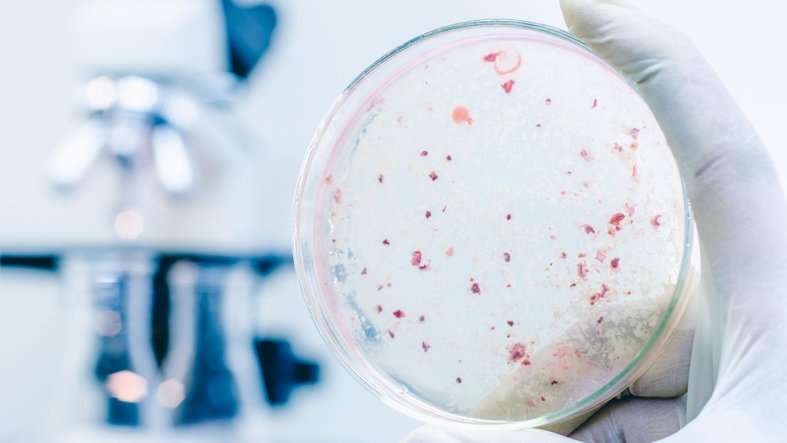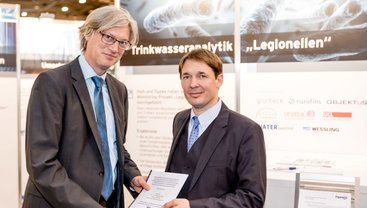Federal status analysis on the occurrence of Legionella in drinking water installations

Legionella as trigger for legionellosis
Legionella is a genus of bacteria living in water that can be regarded as potentially pathogenic to humans. The most important species for human diseases is Legionella pneumophila as a pathogen of Legionella, an infectious disease characterized by pneumonia caused by a droplet infection, which, if left untreated, can develop into a life-threatening disease.
According to estimates by the The Competence Network for Community Acquired Pneumonia, up to 30,000 people in Germany contract legionellosis every year (Von Baum et al., Clinical Infectious Diseases, Volume 46, Issue 9, 1 May 2008, Pages 1356-1364).
Up to 15 % of cases are fatal (Robert Koch Institute 2013, Legionellosis RKI Guide for Physicians).
Legionella in drinking water installations
In principle, Legionella can also occur in drinking water installations and multiply strongly under unfavourable technical conditions. The use of drinking water can therefore pose a risk to human health. Infection is caused by inhaling aerosols containing Legionella, such as those produced during showers. In Germany, the operator of a drinking water installation has been obliged since 2011, under certain conditions, to have his installation tested for Legionella.
In contrast to chemical parameters, however, there is no limit value for Legionella, since the minimum infection dose that would trigger Legionella is not known, but a so-called technical measure value. An established excess indicates a hygienic-technical deficiency and thus represents an avoidable risk potential for the consumer. Concrete information on the actual incidence of Legionella in drinking water installations and the resulting risk potential for users has not been available to date.
Conducting scientific studies
Since data on the occurrence of Legionella in large quantities are already available in principle at many member companies of figawa, but have never been combined and systematically evaluated, the renowned Institute for Hygiene and Public Health of the GeoHealth Center of the University of Bonn (IHPH) was subsequently commissioned in 2016 and 2018 to carry out two studies by figawa.
The aim of the studies was to close the gaps in knowledge and to obtain reliable data on the occurrence of Legionella in drinking water installations.
In the first study from 2016, the focus was on the pure occurrence of Legionella in drinking water installations without aiming at the exact location within the respective installation or other marginal parameters. The two questions: In how many samples can Legionella be detected and how many buildings are affected, should be answered.
In the second study from 2018, the questions not asked in the first study came into focus:
- If Legionella is detected in drinking water, where exactly are they found?
- Does the present temperature level play a decisive role in the occurrence of Legionella?
Laboratories and service providers from the AK Wasseranalytik supply more than 1.3 million data sets.
In order to be able to answer the above questions, the results of more than 1.3 million routinely performed drinking water tests, which were made available to the IHPH by laboratories and service providers from figawa's working group on water analysis, were evaluated in both studies. This data set is unique worldwide in its scope and enabled the IHPH to carry out a so-called Big Data Analysis.
The results of the study are summarized here:
- The technical measure value for Legionella was exceeded in 5.6% of all samples (n=1,020,328).
- In 16.5 % of all buildings (n=100,213) between 2012 and 2015 at least one tap was detected that exceeded the technical measure value.
- The highest exceedance rate of 8% was found with the peripheral samples, while this was significantly lower in the flow (1%) and return (2%).
- All analysis carried out on the relationship between Legionella occurrence and hot water temperature confirmed that the Legionella evidence decreases qualitatively and quantitatively with higher temperature.

Professor Thomas Kistemann officially presented the results of the first study in October 2015 at the wat in Essen.
Publications
The results of the first study were published in the German press. A publication of the second study in a renowned english journal is already in progress.
